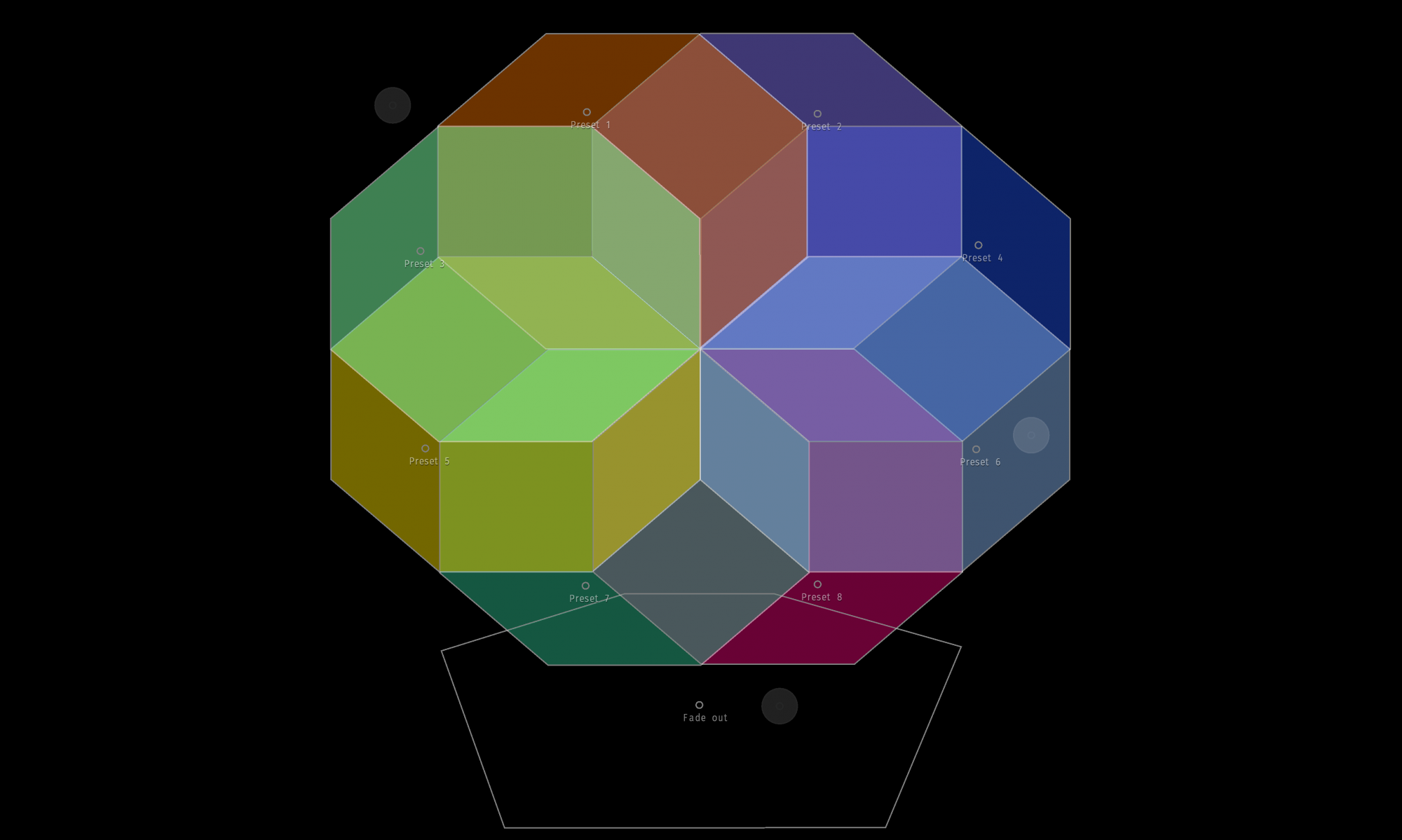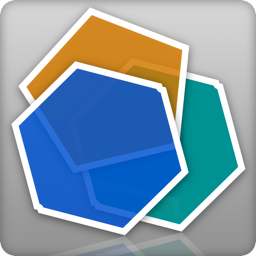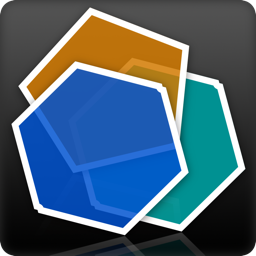
Presentation
MIEM Play is an innovative OSC controller app for touch interfaces. Based on your favorite presets, it allows you to create, interpolate and discover new presets from touch interactions with shapes on the screen.
For artistic purposes such as sound synthesisers and filters, lights control or VJing, controllers are usually made of faders and control knobs, sometimes of X/Y surfaces. Each fader, knob or X/Y distance is then linked to a specific OSC or MIDI message, such that each element controls a specific parameter of your synthesiser, filter or DMX light. This allows precise control of independent parameters, but does not allow you to control numerous parameters in live situations.
Instead of controlling separate parameters – for example, the cut-off frequency and resonance of a filter – MIEM Play allows you to create, interpolate and discover full presets. Based on your favorite presets linked to geometric shapes, it computes new presets in real-time.
While your touch gestures control the interpolation, MIEM Play sends the interpolated presets in real-time by OSC messages. It allows you to focus on the output of your system, instead of focusing on the values of the parameters.
Get the app
 |  |
 | Download version 1.2.0 for Windows |
 | Download version 1.2.0 for macOS |
Important: to build and upload your own custom sessions to mobile platforms, please check and download the MIEM Editor desktop application.
MIEM Editor
Because MIEM Play is designed as a robust and stable controller for live performances, it does not allow you to edit the sessions (the .mcs files) that you will play.
To create and edit your OSC controller sessions, you must use a desktop application called MIEM Editor. This application creates session files (with the .mcs extension) that MIEM Play can read and play
To transfer files from Windows/macOS to an iPad or iPhone, you can use a cloud service such as iCloud.
To transfer files from Windows/macOS to an Android tablet or smartphone, you can use a cloud service such as Google Drive, or connect the Android device directly to your computer via USB.

To get MIEM Editor for Windows or macOS, please go to the downloads page.
Within Editor, you can draw custom shapes for touch interactions.
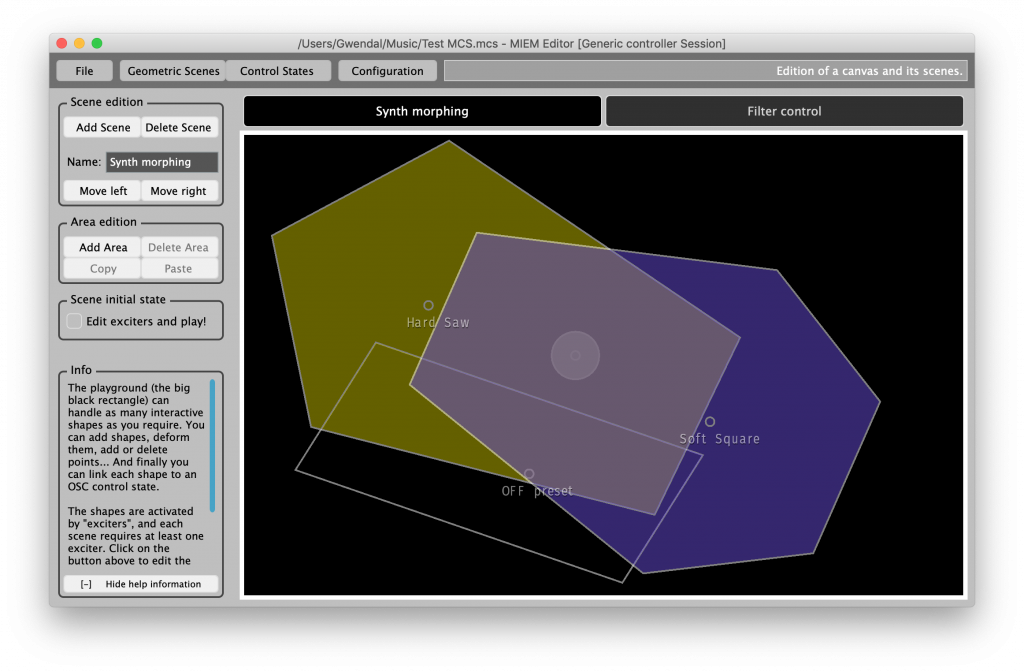
Then, each shape will represent a particular preset. For example, it is possible to start from your favorite presets, to define them within the Editor, and to link your presets to the shapes. When moving your fingers on the screen, you can now create and discover new presets from your favorite ones!
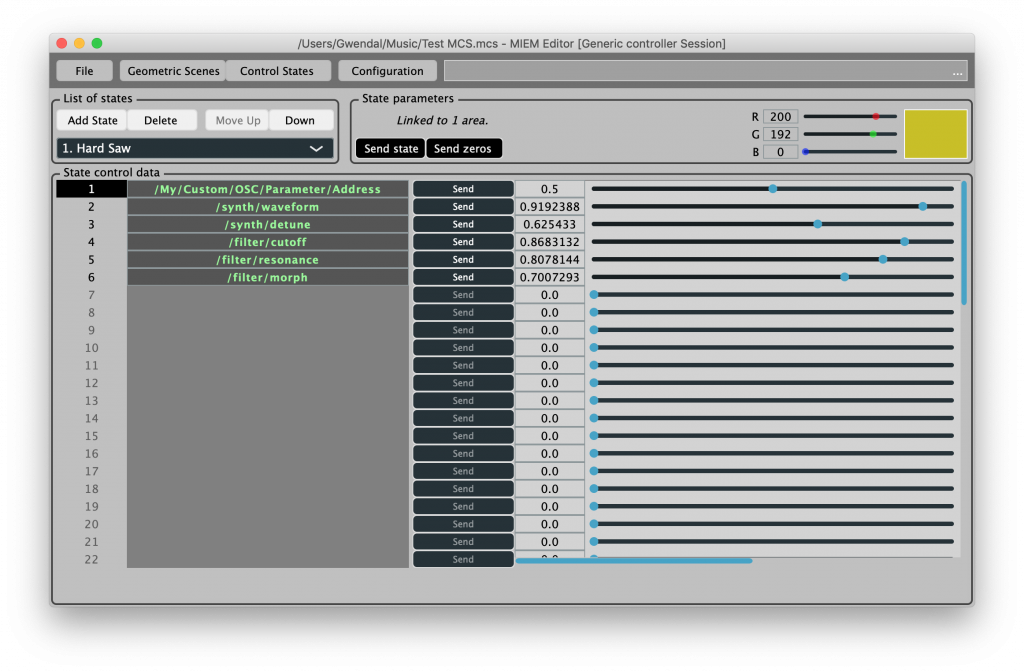
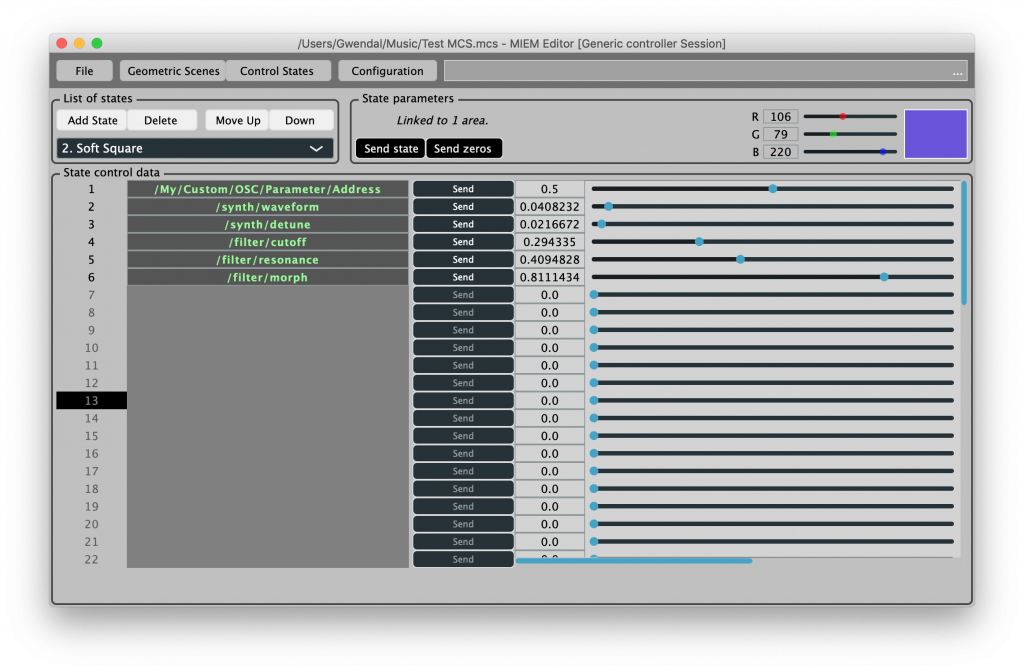
In the Editor, each line is a particular parameter of a whole preset. The two previous examples show presets (or states) with six parameters. Each parameter is sent to a precise OSC address, such as “/synth/waveform” or “/filter/cutoff”.
If you do not define custom OSC addresses, MIEM automatically assigns a “/miem/N” address to the parameter of line number N+1.
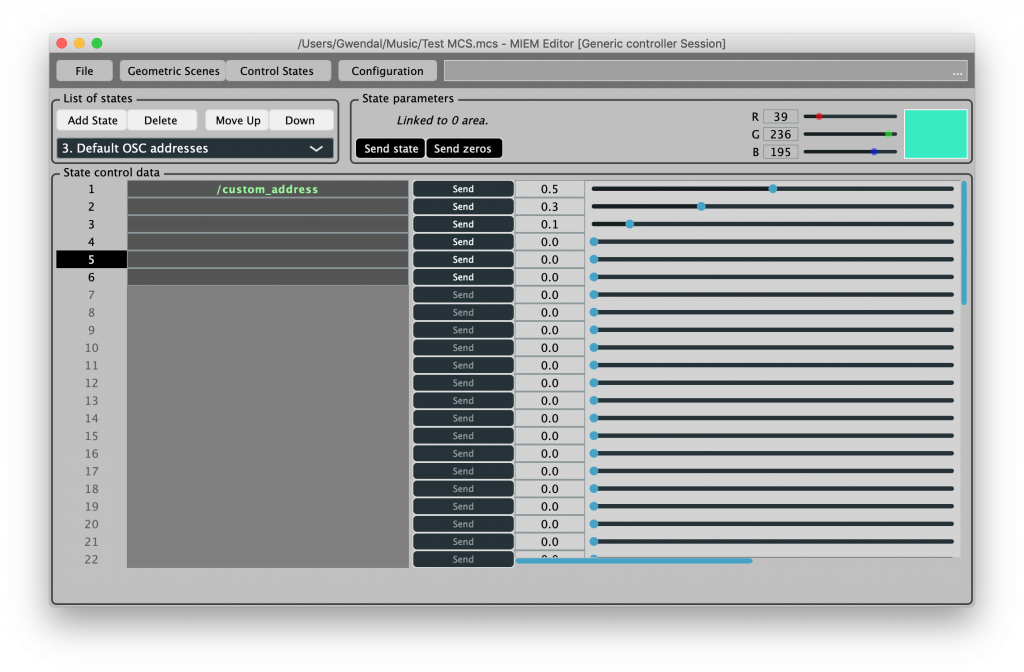
In the screenshot above, parameter number 1 has a custom address : it will be sent in OSC messages to address “/custom_address” with value 0.5. Other parameters do not have a custom address, such that:
- Parameter on line 2 will be sent in OSC messages to address “/miem/1” with value 0.3
- Parameter on line 3 will be sent in OSC messages to address “/miem/2” with value 0.1
- Etc…
For more information, or to participate in the research project as an artist, tester or developer, please contact us.
